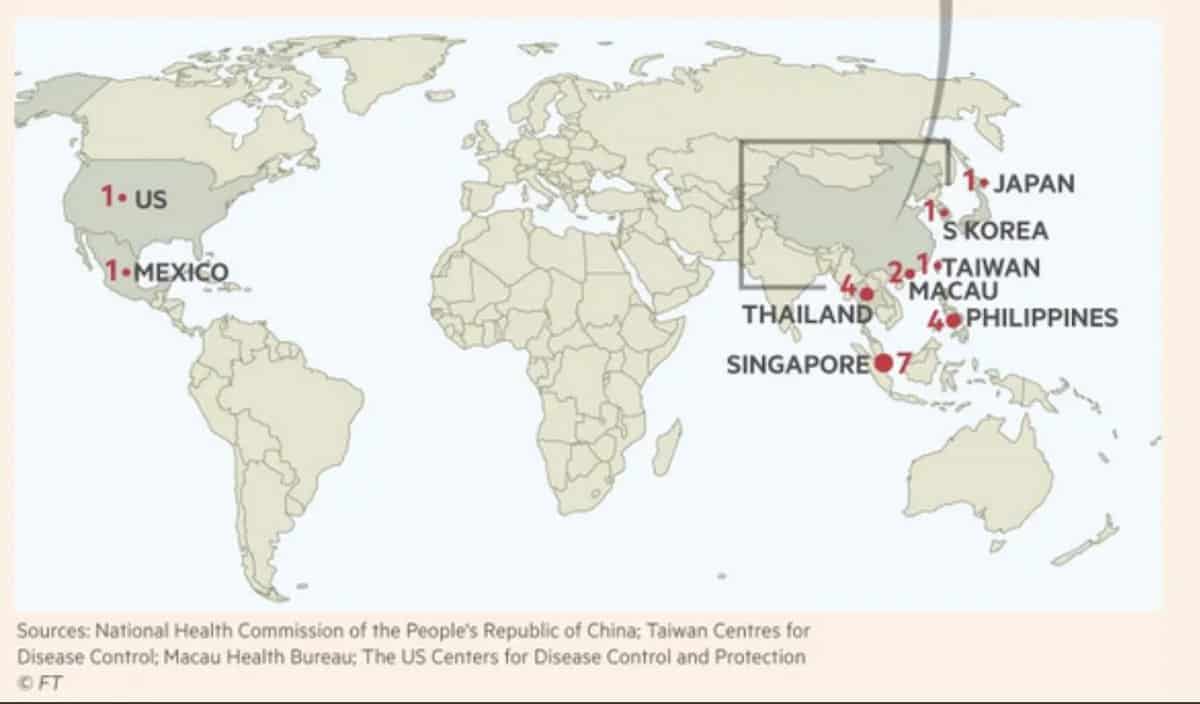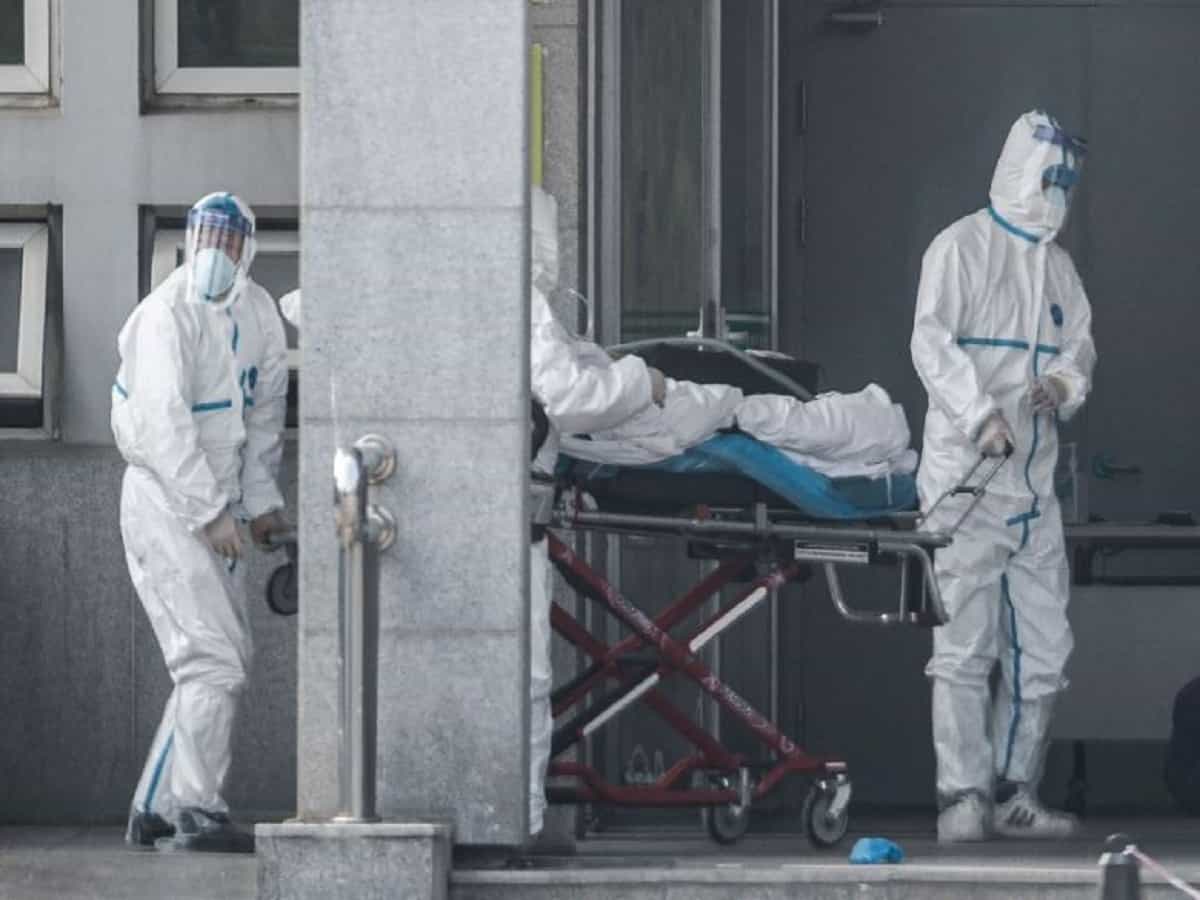Beijing: The death toll in China’s viral outbreak has risen to 25, with the number of confirmed cases also leaping to 830, the government said on Friday.
(The Wuhan virus belongs to a family of viruses known as Coronaviruses. These viruses infect mostly bats, pigs and small mammals. But they mutate easily and can jump from animals to humans, and from one human to another)
The National Health Commission said authorities also examined 1,072 suspected cases of the virus that first emerged in central city of Wuhan.
The markedly higher numbers were released just hours after the World Health Organization stopped short of declaring the situation to be a global health emergency.

China locks down cities to curb virus
China has effectively quarantined nearly 20 million people across Wuhan and some nearby cities in response to the virus, and announced measures to curb its spread nationwide as hundreds of millions of people began travelling across the country this week for the Lunar New Year holiday.

“This is an emergency in China, but it has not yet become a global health emergency,” WHO chief Tedros Adhanom Ghebreyesus told reporters in Geneva.
Streets and shopping centres in Wuhan, a major industrial and transport hub, are now eerily quiet after authorities told residents not to leave the city of 11 million, where most of the cases have been identified.
The National Health Commission said the death toll was revised upward following eight new deaths on Thursday, and 259 new cases reported across the country.
Out of the total 830 confirmed cases, 177 were in serious condition, it added.
Thirty-four people have been “cured and discharged”.
The respiratory virus emerged from a seafood and animal market in Wuhan and cases have been reported as far away as the United States.
The new virus has caused alarm because of its similarity to SARS (Severe Acute Respiratory Syndrome), which killed nearly 650 people across mainland China and Hong Kong in 2002-2003.
But after two days of talks to determine the level of global concern, the WHO stopped short of declaring a so-called “public health emergency of international concern” — a declaration used for the gravest epidemics.
City comes to halt
Beijing cancelled massive gatherings that usually attract throngs at temples during the New Year holiday, while the historic Forbidden City will close from Saturday.
Streets and shopping centres in Wuhan were eerily quiet after authorities told residents not to leave the major city of 11 million people, where most of the cases have been identified.
Trains and planes out of Wuhan were indefinitely suspended and tollways on roads out the city were closed, leading to fear and panic for those who were trapped.
“We are feeling as though it is the end of the world,” said one Wuhan resident on China’s Twitter-like Weibo platform, voicing concerns about shortages of food and disinfectant.
Authorities in neighbouring Huanggang city also announced public transport and train services would be suspended at midnight, while people were told to not leave the city of 7.5 million.
Ezhou, a city in Hubei province with a population of 1.1 million, announced the train station had been closed earlier in the day, while three other cities in the province announced restrictions on their public transport or roads.
WHO’s stance
If WHO had declared a global emergency, it would prompt countries to intensify their cooperation towards reining in the virus, including possibly on trade and travel restrictions — something the organisation is not recommending for the time being.
Countries have already increased efforts to stop the spread of the pathogen — known by its technical name 2019 Novel Coronavirus (2019-nCoV) — with thermal screening of all passengers arriving from China at airports in a number of countries.
Several companies have also begun exploring developing a vaccine for the virus, with hopes that initial clinical trials could be carried out within months.
Tedros meanwhile hailed China for quickly spotting the new virus and for its “cooperation and transparency” in sharing vital information about it with the international community.
But a senior US State Department official said Washington was “still concerned” about transparency in the Chinese government.
During the SARS epidemic, the Chinese government took months to report the disease and initially denied WHO experts any access.
WHO’s emergency committee stressed the need for international vigilance and information sharing, and recommended a new meeting in “a matter of days to examine the situation further.”

